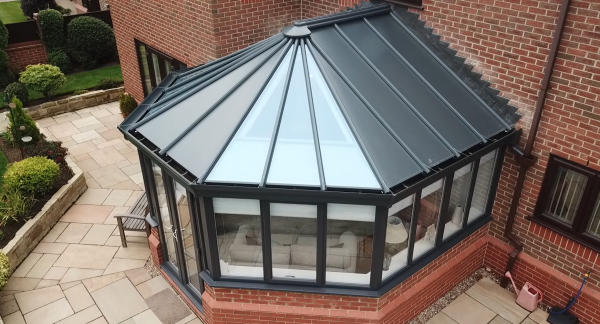Deposit Protection and Insurance Backed Guarantees for Home Extension Projects
3rd July 2019
Find an InstallerProtecting Your Investment
If you’ve taken the exciting decision to add a conservatory or extension to your home, then it’s important to ensure that you and your investment are looked after during the build process and beyond.
There are different insurances available which protect your investment at the various stages of a project. You may have heard of deposit protection, staged payment protection and insurance backed guarantees but are not sure what they are or how they could help you in the event of an issue with your installation company.
If you only read one piece of advice about the legal side of creating your new living space, then let this guide below be it. It is rare that homeowners need to use these insurances but when they are needed, it’s absolutely crucial that you have them in place.
Deposit Protection
You may have heard of deposit protection but do you know exactly what it is and how it protects you?
Most installation companies will ask you for a deposit and/or staged payments to protect them in the event that you were to cancel the order when they have already ordered the products needed.
If your installation will total more than £30k you should definitely ensure that you have deposit protection insurance and an IBG (see the section below on IBG’s) in place. You could also consider using an Escrow account. If the overall installation cost is below £30k it’s recommended that you get payment protection, but paying with a credit card is ok due to section 75 of the Consumer Credit Act.
Deposit protection policies are there to protect you if you have paid a deposit and/or staged payments and your installation company ceases to trade before the project is completed. Policies vary but a typical policy will protect any money you have paid your installer, up to 25% of the contract value. Many policies do have an upper limit for the contract value so it’s important to check that this will be enough to protect you for your specific project.

If you do need to make a claim, the insurer will either appoint another company to finish your project to completion or will refund back the money you have paid – again, it is important to check the type of cover you will receive when taking out your deposit protection policy.
Taking out deposit protection is vitally important as unfortunately if you do not have this in place and your installer ceases to trade, you would lose the monies paid and be left with an incomplete conservatory or extension. All of our Ultra Installers will be able to provide you with a comprehensive deposit protection policy – make sure you ask for it and check the paperwork before paying your deposit or staged payments.
If you do choose to opt out of deposit protection (which we wouldn’t recommend), then at the very least, make sure you pay on credit card. This is because your credit card company should cover you up to a certain amount in the same way that the deposit protection policy would. However, don’t just assume that this is the case – make sure you check every detail, whether it be the fine print in a deposit protection policy or the amount your credit card would cover you for. These policies are only any use if they will offer you the protection you need in the event of something going wrong – read the fine print and read it again. Make sure you’re protecting your investment.
It’s also important to state that being asked to pay anything over a 25% deposit is not really deemed appropriate. If your installer asks for a higher amount than 25%, challenge them and ask them why. Explain that you know that this will likely mean that you would not be covered in the event of them ceasing to trade during your installation. Don’t feel worried about asking these questions – you’re spending a lot of money and entrusting your home to your installer and one that is reputable will not have an issue in answering your questions and putting your mind at ease.
Insurance Backed Guarantees
You may also have heard of insurance backed guarantees or IBG’s as they are commonly known. This is another vitally important document and contrary to popular belief, you do need an IBG as well as deposit protection as they cover you for different scenarios.
Whereas the deposit protection policies cover you in the event of your installer ceasing to trade during the build process, an IBG covers you if you have problems with your conservatory/extension in the years to come following its installation, and the installer is no longer trading to come and carry out remedial work.
If you were to find yourself in this situation, then you would make a claim on your IBG and providing the remedial works required are covered on your IBG, the IBG provider will arrange for the repairs needed to be carried out at no cost to you.
Again, this is an extremely important document as dependent on what the issue is, repairs could be extremely costly. If you are not offered an IBG by your installer, make sure you ask for one! If you do run into problems with your conservatory in the future, then you’ll be very glad that you did.
As with deposit protection policies, it’s crucially important that you read the fine print of your IBG as the amount of coverage that they offer and the exact circumstances in which they will provide the cover varies hugely from one policy to another. Make sure that yours is adequate for the scale and cost of your project so that you know that if the worst happens and you need to reply on the IBG, your home will be properly taken care of to the standard you expect.
It is also important to say that aside from checking the detail of your deposit protection and IBG, make sure you ask for proof that you actually have one! Unfortunately, it is not unheard of for unscrupulous companies to say that they have set up the policies and not do so; leaving their customers in a potentially very costly situation should something go wrong. Be firm and insist on receiving the documentation for your policy before paying anything – not just signing the policy documents.







